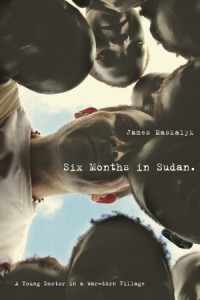Learning to fly.
There is a day where every parent comes face to face with the hard reality that they have to let their child fly free into the real world. But I don’t think Africa was where my mother had in mind for me. At least not for the long term.
When I first told my mom that I wanted to go abroad for a year, she was completely supportive. When I told her I wanted to go to a school in Norway with a 2-month field course in Tanzania, she was still very supportive, even though she wasn’t as comfortable with the field-course portion. So recently, when I found out more information concerning field research during my exchange, naturally, I told my mom about it. She didn’t take it too well. Or to put it another way, she took it as well as she could.
The notion of me completing my own field research in a possibly unstable country, with no real institutional structure and being pretty much on my own, well, scared her. It’s understandable – I mean, I was in the same position as her when it dawned on me that I would have to completely step out of my safe, comfortable bubble to reside in a place that may be quite risky. It took me time to get to the point where I was set on taking such risks. I knew that my mom had not really realized what field of work I was actually wanting to go into when I applied to the GRS program even. But I rolled with it. I wanted to find out for myself if this path was the one I wanted to be on – to find my resolve in residing in a developing country, if only for a time. Once I found that resolve, I knew I could look right at my mother’s face and tell her that this was what I wanted.
Because, in the end, there’s nothing my family can do or say that can stop me from my own life choices. I know that, and my mom knows that. But I know that if I had even the faintest doubt in my mind about this path, my mom would try to coax me out of it. Not because she doesn’t respect my decisions but because she, as a mother, wants me to live in my comfortable bubble of a life for as long as possible. No parent wants their child to be in a risky environment, right?
I want my mom to understand my resolve. I want her to understand that I want to step out of my bubble – to see the world for what it is – good and bad. I want to face challenges, find myself in uncomfortable situations, and fall down over and over again, because that’s the only way I will grow as a person. That is the only way to expand my world: to learn – to experience – and truly give back. I have been born into this seat of privilege and I don’t want to take it for granted. I don’t want to be naive. I want to live my life fighting myself out of a life of apathy and ignorance.
For these experiences, I’m willing to put myself into risky environments. To make sacrifices. To find out, truly, if I am a person that can work in the field of Global Health and Development on the ground – not behind a desk. I need to know. That is why I’m going. Some part of my mom knew that when she walked out of my room today. She wasn’t happy – but she hadn’t tried to persuade me out of my decision.
We all have to fly away from the nest some day.

